
Purdue’s Office of Undergraduate Research (OUR) and Purdue Polytechnic awarded 11 scholarships for 2018-19 to undergraduate students to recognize their engagement in original research, scholarship, or creative work under the guidance of faculty mentors. Scholarship recipients received $1000, disbursed through the Division of Financial Aid, with half from OUR and half from the Polytechnic.
We talked with several scholarship recipients to learn about their projects.
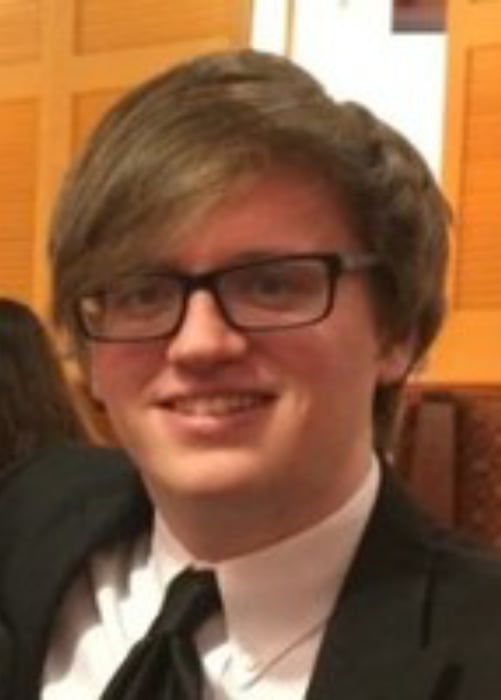 Benjamin Carpenter
Benjamin Carpenter
- Major: Web Programming and Design (Department of Computer Graphics Technology)
- Graduation Date: May 2020
- Project Title: “Visualizing Lupus Symptom Clusters and Mistaken Diagnoses”
- Mentor: Vetria Byrd, assistant professor of computer graphics technology
Systemic Lupus Erythematosus (SLE) is an autoimmune disease that is often first misdiagnosed as other diseases. The symptoms of lupus are similar to many other diseases, and testing for it can be complex.
Prof. Byrd and I are seeking to conduct a systematic literature review to gather data on the symptom clusters of lupus and the diseases for which it is misdiagnosed to create an interactive visualization tool that will help reduce misdiagnoses and contribute to the research on lupus symptom cluster management.
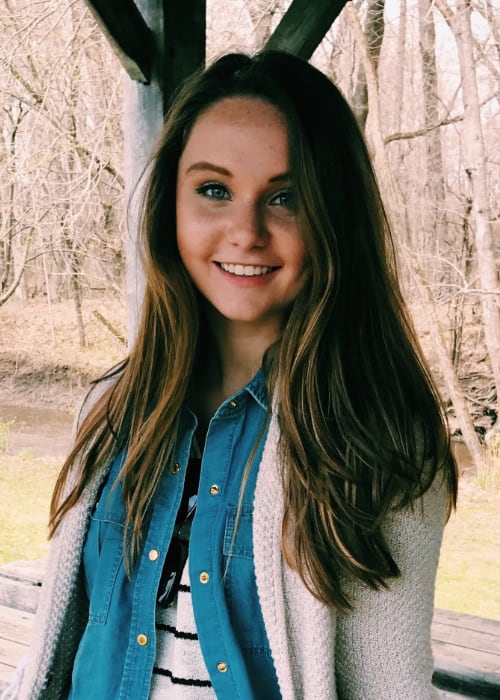 Hayley Farmer
Hayley Farmer
- Major: User Experience Design (Department of Computer Graphics Technology) with minors in Communication and Psychology
- Graduation Date: May 2020
- Project Title: “Building Leadership Capacity Through Transdisciplinary Design Education”
- Mentor: Colin Gray, assistant professor of computer graphics technology
The goal of this project is to describe how designers build their leadership capacity through studio-based transdisciplinary undergraduate education. To accomplish this goal, I will deeply engage in UX design education practices. Data sources will include weekly reflections and group interactions on Slack, a team-oriented communication tool used in all UX courses. In addition, interviews with a multitude of UX students of various classifications and competencies will be conducted and analyzed to identify students’ engagement in their own learning, facilitating the description of their developing design identity and ability to lead as designers not only in our program but also in other disciplines.
The outcomes of this project are expected to result in new knowledge regarding how the “hidden curriculum” of studio learning shapes the formation of designers and their developing design identity, particularly in relation to transdisciplinary skills, with a large focus on leadership.
Jacob Hubbard
- Major: Building Construction Management
- Graduation Date: December 2019
- Project Title: ”Applications of Mobile Robots in Construction Education”
- Mentor: Kereshmeh Afsari, assistant professor of construction management technology
I am working with two robots; one is a mobile unit and the other is a small mountable arm. I am currently looking into how these robots can be used to perform safety inspections on a job site that would normally be unsafe for a human worker. My current idea is to have the mobile unit as a camera that can do an independent inspection of an area that may be compromised in regards to air quality. I am working on programming it to detect is own path through the job site and then take pictures of what needs to be inspected.
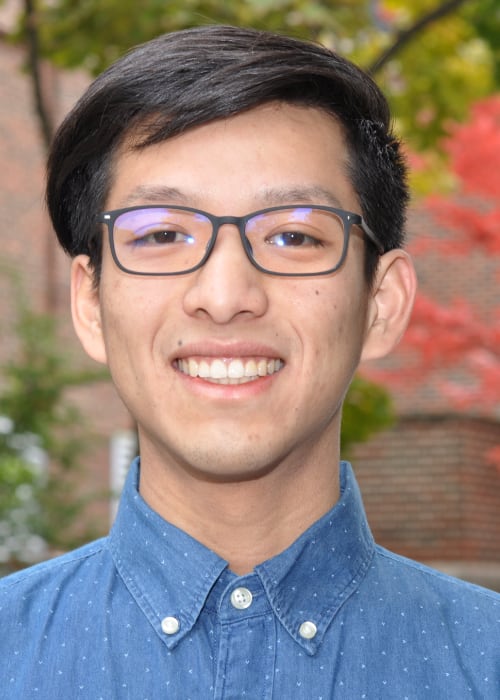 Shih-Hsuan Hung
Shih-Hsuan Hung
- Major: Robotics Engineering Technology and Electrical Engineering Technology (School of Engineering Technology)
- Graduation Date: May 2020
- Project Title: “Design and Fabrication of Neuromorphic Circuits Using OFET”
- Mentor: Robert Nawrocki, assistant professor of engineering technology
I am studying thin film organic electronics that could be integrated in electronics used in soft robotics, health gadgets, and medicine. We are looking for a more affordable way to produce accurate, flexible sensors that could replace classical rigid sensors. I am currently focusing on making a form of organic transistor that could be used in a soft pressure sensor.
I have learned a lot since I joined this research group, including how to use devices like a metal evaporator. There are always challenges and there have been a couple of issues that surprised me. In these processes, I learned how to work with others and to not rush things.
I was interested in this project because I had similar ideas of things to make, and I believed that being involved in this research group will highly benefit my career and my path towards my goals. Most importantly, I enjoy staying in this group because of the people. My professor has been really kind to everyone and other people in the lab also made it feel like home.
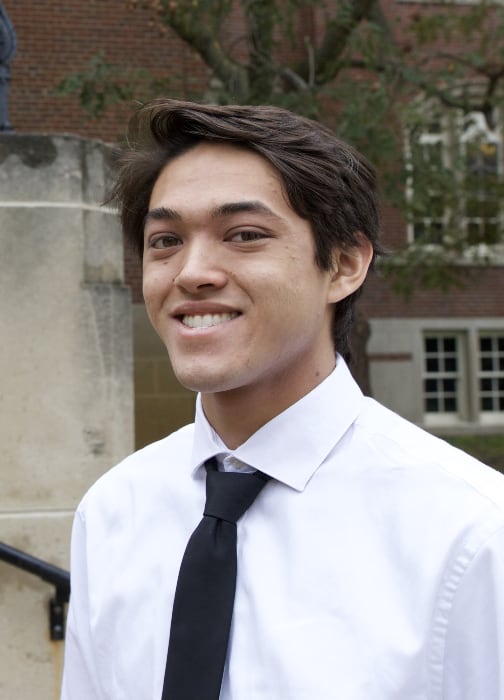 Liam Rowe
Liam Rowe
- Major: Engineering-Technology Teacher Education (Department of Technology Learning and Innovation) with minors in Design and Innovation, Organizational Leadership, Communication, Asian Studies, and Asian-American Studies
- Graduation Date: May 2021
- Project Title: “Combining Data Visualization with Engineering Design Problems to Foster Data-Driven Design Decision Making”
- Mentor: Scott Bartholomew, assistant professor of technology leadership and innovation
I am trying to bridge the differences between how engineering design problems are approached in the high school classroom and how they are approached in industry. In industry, decisions are not generally made without proper justification, including background data and charts and information about options and effectiveness. In the classroom setting, these problems are usually approached with a guess-and-check or trial-and-error tactic. We are planning to integrate data visualization into engineering design lessons.
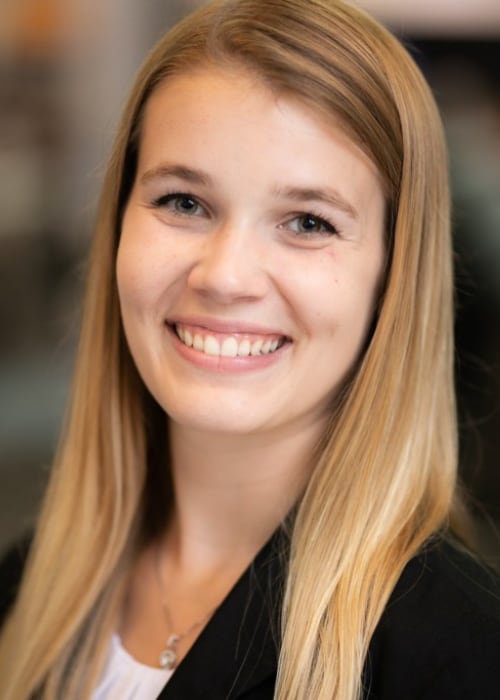 Kayla Rux
Kayla Rux
- Major: Cybersecurity (Department of Computer and Information Technology)
- Graduation Date: May 2020
- Project Title: “Vault Application Forensics”
- Mentor: Kathryn Seigfried-Spellar, assistant professor of computer and information technology
A vault application is designed to hide photos and other sensitive information. When the application is opened, the user must enter a password, and the vault “opens.” For our research, we are looking at the process these applications use to keep the photos secure and how to possibly break the security. The original application we were going to research was taken off the app store, providing an unexpected challenge. We had to find a new path to take for our research. From this, I learned it’s important to have a back-up plan and to be flexible with anything that might come up.
I was interested in pursuing this project to help prepare me for grad school by getting familiar with the research process. It also allows me to apply the skills I have learned in the classroom.
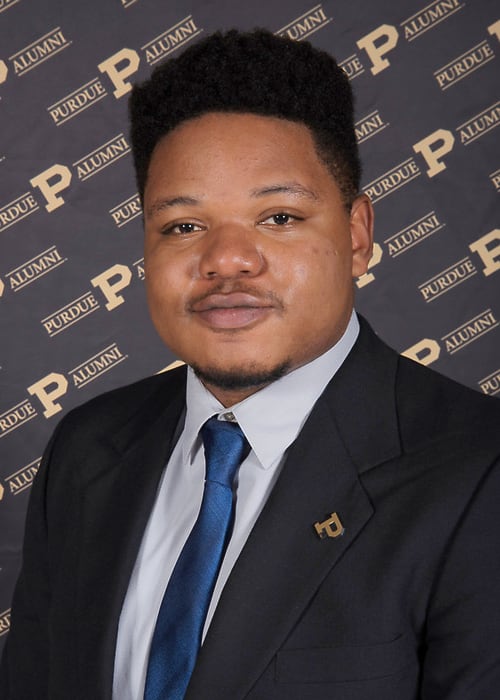 Isaiah Thomas
Isaiah Thomas
- Major: Human Resource Development (Department of Technology Leadership & Innovation), with minors in Human Resource Management and Sociology
- Graduation Date: May 2020
- Project Title: “The Effects of Virtual Reality on Intercultural Competency Training”
- Mentor: Mesut Akdere, associate professor of technology leadership & innovation
My project focuses on intercultural leadership and competence. Intercultural competence encompasses many aspects of behavioral, emotional and cognitive skills that allow for domestic individuals to effectively communicate with international individuals of a different culture. The study has participants traveling on a business trip via virtual reality (VR) for a partnership on a project with a company sourced in a South American country. Our research will determine if VR effectively improves student's cognition of intercultural competence in comparison to conventional video training.
We are still in the process of gathering data, but it has been surprising to see some trends forming about the way many domestic students react to a different culture and work environment. A challenge moving forward in this research could be capturing the true essence of a different culture/business organization in an effective manner for potential investors, but we do extensive research prior to crafting each simulation.
The significance of intercultural competence in today’s market is that more organizations are becoming globalized. As businesses expand to other countries, companies are looking for new ways to train their domestic employees on intercultural matters without the heavy costs of sending them to live in another country for extended time or losing promising deals due to inexperienced staff.
I hope to pursue a professional career in global human resource development, so research on intercultural competence is right up my alley of interest. In addition, it’s always a pleasure to get experience working with biometrics and VR developing software.
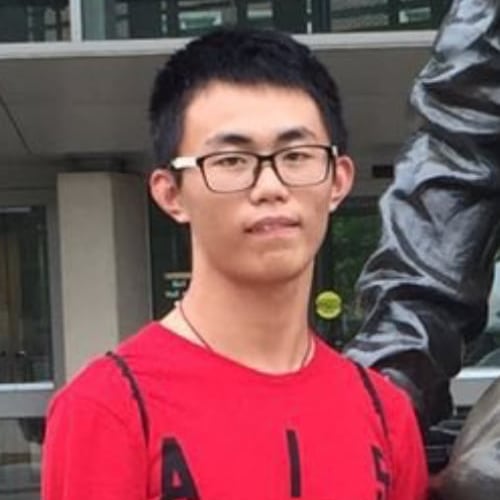 Yuanxun Wang
Yuanxun Wang
- Major: Computer and Information Technology (Department of Computer and Information Technology)
- Graduation Date: May 2019
- Project Title: “Applying Machine Learning to Refine the 3D Modeling Process of Brain Blood Vessels”
- Mentor: Julia Rayz, associate professor of computer and information technology
A simple way to describe the study is that a computer will be taught about human brain blood vessels. We want to increase efficiency and eliminate errors in the process of building a 3D model.
The biggest challenge is that there are not many articles in this field which could be used as reference. I have searched articles from similar fields to look up commonly used techniques.
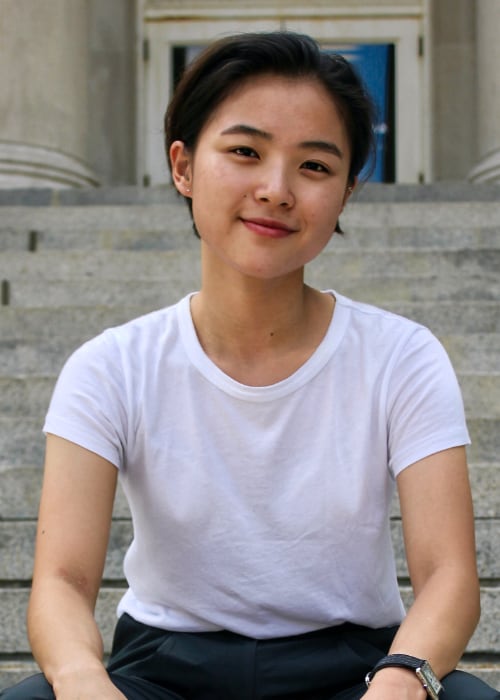 Jessie Zhou
Jessie Zhou
- Major: User Experience Design (Department of Computer Graphics Technology)
- Graduation Date: May 2020
- Project Title: “Exploring the Artifacts Created by ‘A---ole Designers’”
- Mentor: Colin Gray, assistant professor of computer graphics technology
In this project, we are seeking to identify new knowledge about how people share and discuss deceptive or manipulative design artifacts on Reddit. We are particularly interested in how these conversations relate to the ethics of user experience (UX) design, motivated by our parallel research on “dark patterns” of UX. I have conducted a first round of data analysis of artifacts shared on the /r/a---oledesign subreddit, using thematic analysis to understand the characteristics of artifacts that participants classify as "a---ole designs" and the context of the artifact in use. Moving forward, I will be analyzing conversations in the comment threads, and create a codebook to document the structure of responses in relationship to ethical standards or expectations.
Other scholarship recipients were Vanessa Santana and Andres Santiago.
Additional information:
- About OUR scholars (Purdue Office of Undergraduate Research)
- Office of Undergraduate Research awards 12 research scholarships to Polytechnic students (2017-18)
